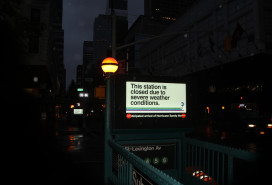An electric scooter caught fire in our building. Can we ban them from common areas?

Standard apartment insurance polices typically do not cover electric scooters.
There was a fire recently in our building: The battery in a resident's electric scooter shorted and caught fire in the closet of a common area where it was stored. The damage could have been catastrophic; it did cause $50,000 worth of damage and major inconvenience. We plan on setting up an outside covered charging station, but I am wondering if we are allowed to ban these scooters and bikes from inside the building?
These kind of devices can indeed cause damage if they're left to charge unattended, our experts say, so residents must make sure to follow safety protocols.
"Fires have occurred with electric scooters and hoverboards," says Jim Long, spokesperson for the New York City Fire Department. "I would not say we have a trend, but we have seen some incidents specifically and directly related to these charging."
In fact, just a couple weeks ago, there was a fire at a building in the Bronx caused by an issue with a scooter's lithium battery.
Cause of yesterday’s all-hands fire at 1720 Watson Ave. in the Bronx was accidental, electrical (lithium ion battery from an electric scooter stored in the living room). Smoke alarm not operational in fire apartment. pic.twitter.com/1JAoKNpRfm
— FDNY (@FDNY) January 13, 2021
The problem likely stems from battery-powered devices that are substandard, and run the risk of shorting out while being charged, which can lead to fires. Anyone who purchases an electric scooter, hoverboard, or other similar device should make sure the product is UL-approved so they meet specific safety standards.
"Always follow the manufacturer's guidelines, and don't leave anything unattended while it's charging," Long says. "It might be easy to plug it in and go to bed, but we'd advise against that."
Another concern is building residents who store scooters or other bulky devices in their apartments, which could present obstacles blocking exits in the event of a fire. Ideally, scooters should be stored somewhere that does not block egress, and never left unattended while charging.
Despite these risks, electric scooters cannot be banned from buildings, since people with disabilities may need them for mobility, says Kara Rakowski, a partner at Belkin Burden Goldman. "That would be a violation of the human rights laws, for which there are significant penalties."
Another issue for owners of these devices to keep in mind: Standard apartment insurance polices typically do not cover them, says Jeffrey Schneider of Gotham Brokerage (a Brick sponsor). Given the risks they pose, you'll definitely want to purchase additional coverage if you buy a scooter.
Trouble at home? Get your NYC apartment-dweller questions answered by an expert. Send your questions to experts@brickunderground.com.
For more Ask an Expert questions and answers, click here.



























